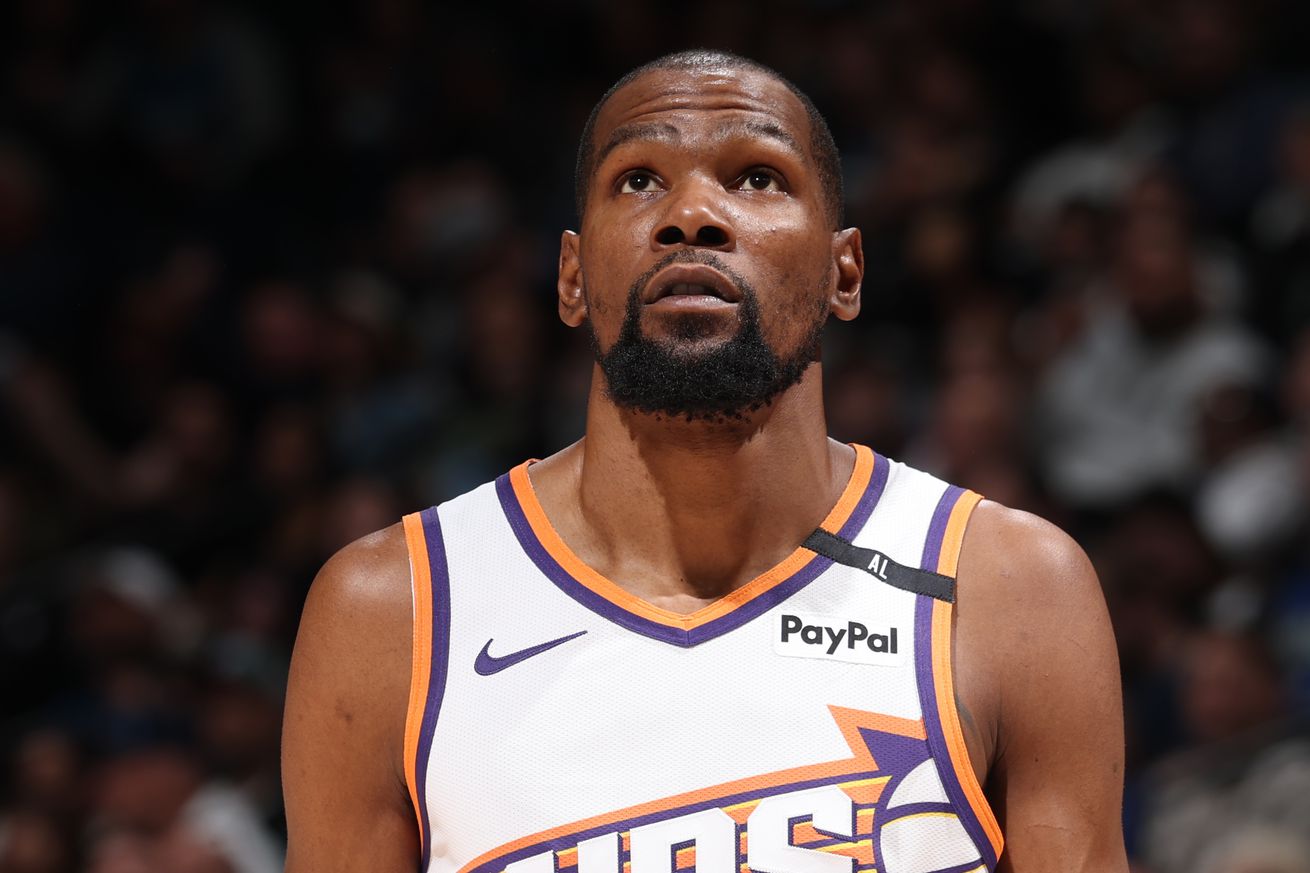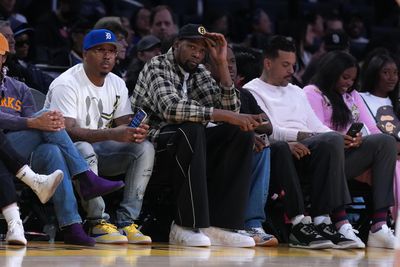
The Phoenix Suns may hold the key to the biggest trade in NBA history.
The Phoenix Suns and Houston Rockets are reportedly working on expanding their blockbuster Kevin Durant trade into what could become a league-record seven-team mega-deal, according to a new report by Fred Katz of The Athletic.

Kirby Lee-Imagn Images
Sources around the league suggest that the final form of the deal could involve not only Phoenix and Houston but also the Brooklyn Nets, Atlanta Hawks, Golden State Warriors, Los Angeles Lakers, and Minnesota Timberwolves. It’s a staggering amount of coordination, and although no trade is imminent, negotiations are active with fine details still being hammered out.
This isn’t just smoke. It’s a carefully constructed puzzle, with each piece needing to fit just right to make the math and mechanics of the collective trades legal under the new, more punitive CBA.
What’s Actually Being Discussed?
While the headlines will focus on Kevin Durant landing in Houston and the Suns acquiring key pieces like Jalen Green and Dillon Brooks, the broader structure involves moving parts that date back to draft night. Many of those deals were agreed to in principle but remain unofficial until July 6. That gives teams a rare window to string deals together, stacking salaries and creating cap exceptions in a way that wouldn’t otherwise be possible.
According to Katz, only five active NBA players are involved in the current version of the expanded trade:
- Kevin Durant → Rockets
- Jalen Green + Dillon Brooks → Suns
- Clint Capela → Rockets (via a sign-and-trade from Atlanta)
- Daeqwon Plowden → reportedly included in a way yet to be determined
- The rest → recent draftees and placeholders from already-agreed deals
Much of the deal involves cap maneuvering and sequencing transactions in a way that satisfies league rules and allows each team to walk away with what they want. For the Rockets, that means bringing in Durant while clearing room for him. For the Suns, it’s about squeezing value from a superstar departure and potentially reshaping the roster around Devin Booker with complementary younger talent and defensive tenacity.
Why the Suns Are Helping Facilitate This Trade
Here’s the key: the Suns don’t have to do this. But by helping connect the dots for other franchises — adjusting timing, absorbing or rerouting small contracts, or simply being a conduit for players or trade exceptions — Phoenix can position itself to extract value on the margins.
In a deal this complex, somebody has to play the adult in the room, and that role can come with subtle but useful benefits.
The most likely payoff? A future second-round pick, maybe two, either directly from a team needing help balancing the books or as compensation for taking on a contract or trade obligation to make the whole thing work. In today’s NBA, those second-round picks matter more than ever. Just look at what teams like Denver and Miami have done with them, or how Oklahoma City has hoarded them to build flexibility.
This also helps the Suns build relationships with other front offices, positioning themselves as a cooperative, creative franchise under the new leadership of a new GM Gregory and owner Mat Ishbia — a long-term value that can’t be overstated.
Bottom Line?
While it’s easy to get lost in the chaos of a potential seven-team trade, the Suns’ role as a facilitator shows how savvy teams can still win around the edges. Whether it’s with a second-round pick, a trade exception, or just goodwill in future dealings, Phoenix is making sure Durant’s departure isn’t just subtraction. It’s leverage.
Listen to the latest episode of the Suns JAM Session Podcast below. To stay up to date on every episode, subscribe to the pod on Apple, Spotify, YouTube, YouTube Podcasts, Amazon Music, Podbean, or Castbox.
Please subscribe, rate, and review.